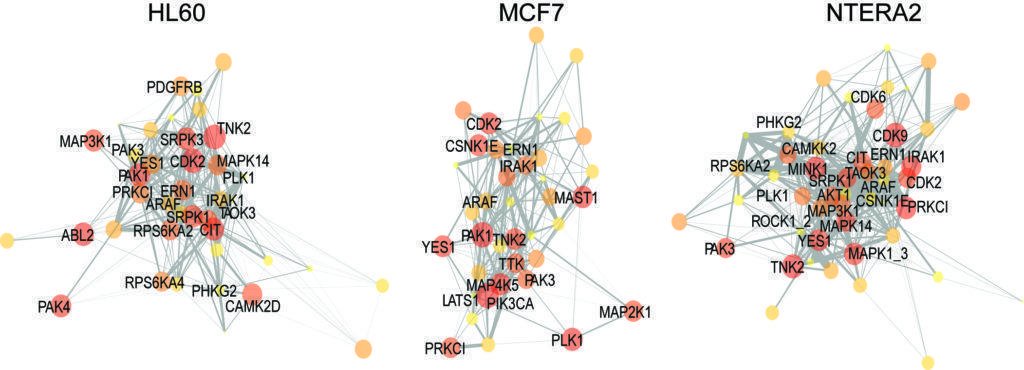Delving deeper into protein network rewiring in cancer
Research published today in Nature Biotechnology has identified new ways to analyse the complexity of the internal workings of normal cells and cancer cells. The study highlights how genetic changes rewire the biochemistry of cancer cells, and may aid in identifying new drug targets specific for a patient’s disease.
In the study, Dr Pedro Cutillas, lead of the Signalling & Proteomics Group at Barts Cancer Institute, Queen Mary University of London, and his team developed analytical tools to determine how changes to the genetic code, known as mutations, alter the protein signalling networks within cells and how these alterations determine the behaviour of cancer cells.
Protein networks disrupted in cancer
Proteins within cells undergo many modifications that change their activity and control different cellular processes. However, in cancer these protein networks can become disrupted by mutations. These mutations can rewire the signalling pathways that control the modification of proteins, altering protein behaviour and, in turn, influencing the behaviour of the cancer cell.

By applying the new computational methodologies to cancer cells, the team were able to link particular protein modifications to specific behaviours in cancer cells. For example, by analysing cells from biopsies of acute myeloid leukaemia (a type of blood cancer), the team discovered factors that determine responses to anti-cancer drugs in these cells. These factors could be used to predict which drug may be more efficacious for a given patient, and may also potentially represent new drug targets for the treatment of this type of leukaemia.
A unique resource
The team have created a unique resource to investigate the relationships between the complex protein networks within cells and the genetic makeup and behaviour of cancer cells. By applying these techniques to the analysis of cancer biopsies, with further clinical research, it may be possible to tailor treatments to individual patients with greater precision than currently possible.
This work was performed in collaboration with researchers from Queen Mary’s School of Biological and Chemical Sciences and The Alan Turing Institute, and primarily funded by BBSRC. Barts Charity, Cancer Research UK and Queen Mary’s Life Science Initiative also contributed to the funding of this research.
Category: General News, Publications

No comments yet